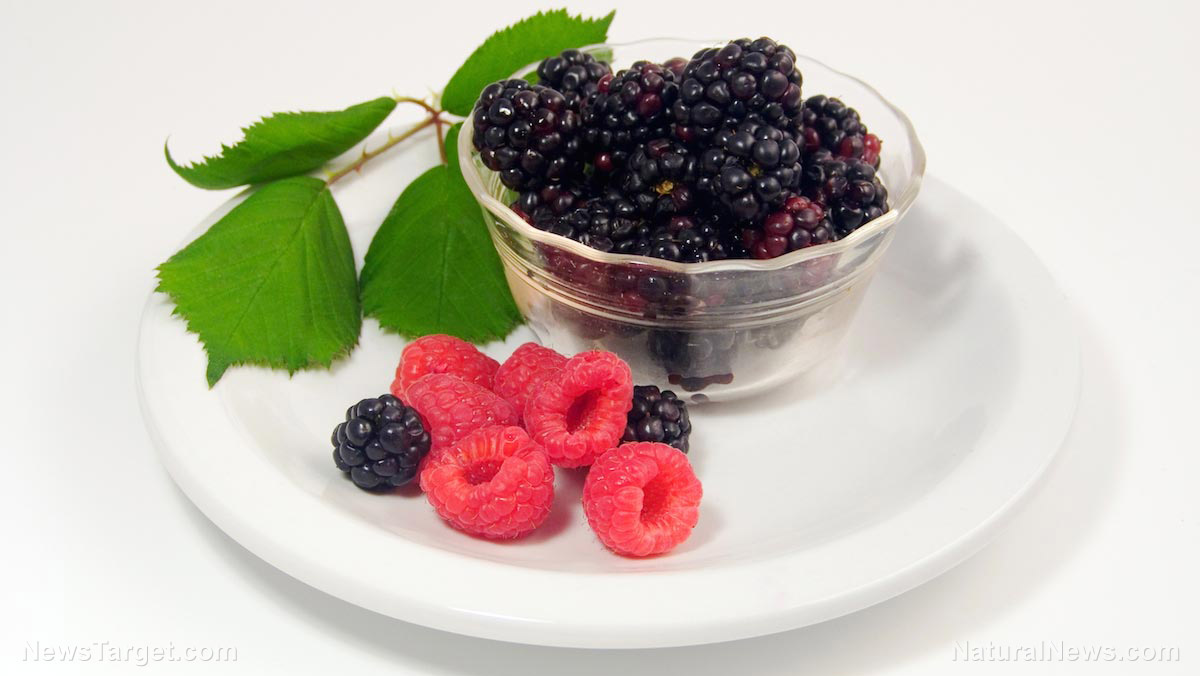The mental and emotional benefits of healthier food: Study finds children who eat well are happier, have better self-esteem, are less likely to get bullied than their peers
02/17/2019 / By Rita Winters

Healthy food consumption is highly associated with good health. This has been validated by various scientific literature: Adding fruits and vegetables to our meals results in healthier bodies and a means to prevent disease, and eating too much junk food and fast food cause obesity, diabetes, and cardiovascular diseases. A study published in BMC Public Health found that food doesn’t just manipulate health, it is also a factor in psychosocial well-being — and vice-versa.
Earlier studies have consistently established the connection between the quality of people’s diets and their mental health. The study further supports the mounting evidence associating food with the human psyche. Dr. Louise Arvidsson, a co-author of the study and a registered dietitian at the Sahlgrenska Academy at the University of Gothenburg in Sweden, stated that a healthy and balanced diet improves the mental well-being of children.
Food and the brain
Participants of the study included 7,675 children aged two to nine from eight European countries. These children participated in the Identification and Prevention of Dietary- and Lifestyle-Induced Health Effects in Children and Infants study (IDEFICS).
The study found that diet quality and psychosocial well-being have a bidirectional (two-way) link in young children: Children who eat healthy food were found to be more stable socially, emotionally, and psychologically, over those who don’t eat healthy food. In addition to this, children who are mentally stable tend to eat healthier food than children who have social issues such as low self-esteem and experiences of being bullied. The parents reported how often their children consumed the 43 types of foods in the survey and using this information, researchers tabulated each child’s Healthy Dietary Adherence Score (HDAS). The HDAS point system is based on healthy dietary guidelines including limiting the intake of sweets, fats, and incorporation of fruits and vegetables into the children’s daily diet. A high HDAS signifies a healthier diet.
Aside from measuring the quality of the children’s diets, the researchers also measured other details such as weight, height, mental well-being (including self-esteem, relationships with family, etc.) through a questionnaire directed to the children’s parents. Two years after the baseline assessment, all the measurements and data gathering procedures were repeated.
The results of the study show that higher HDAS at the baseline was associated with better self-esteem, fewer emotional problems, and fewer peer problems after two years. No socioeconomic factors were included in the assessment, which only goes to show that mental facilities (social, emotional, psychological) were only affected by the children’s dietary habits. No conclusions have yet been drawn since it is well beyond the study’s scope, but researchers hypothesize the significance of omega-3 fatty acids and other nutrients of a healthy diet positively affecting mental health in children.
What should your kids eat then?
No matter the age, your child must have a nutrient-dense menu inclusive of dietary protein, fruits, vegetables, whole grains, and dairy. Always include fruits and vegetables in your children’s daily diets, since these types of foods have all the vitamins and minerals they will ever need on a daily basis. Whole grains and fiber cleanse their gastrointestinal system from microbes and unwanted bacteria that succumb them to disease. On the other hand, parents must aim to control the intake of foods with added sugars, as well as foods with saturated and trans fats. Instead of giving your child a processed or packed fruit juice, make a fresh one instead. Avoid giving children sodas, candies, and fast food, as these do not have any nutritional value. Having healthy diets result in happier children, and you’ll be sure your kids will be safe from unexpected illnesses and other negative health aspects.
Sources include:
Tagged Under: children's health, emotional health, food as medicine, food cures, food science, Fresh, grocery cures, mental health, mind body science, organics, research, well-being



















